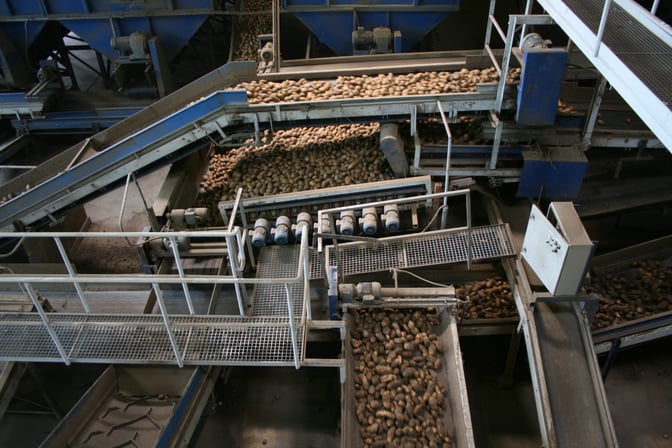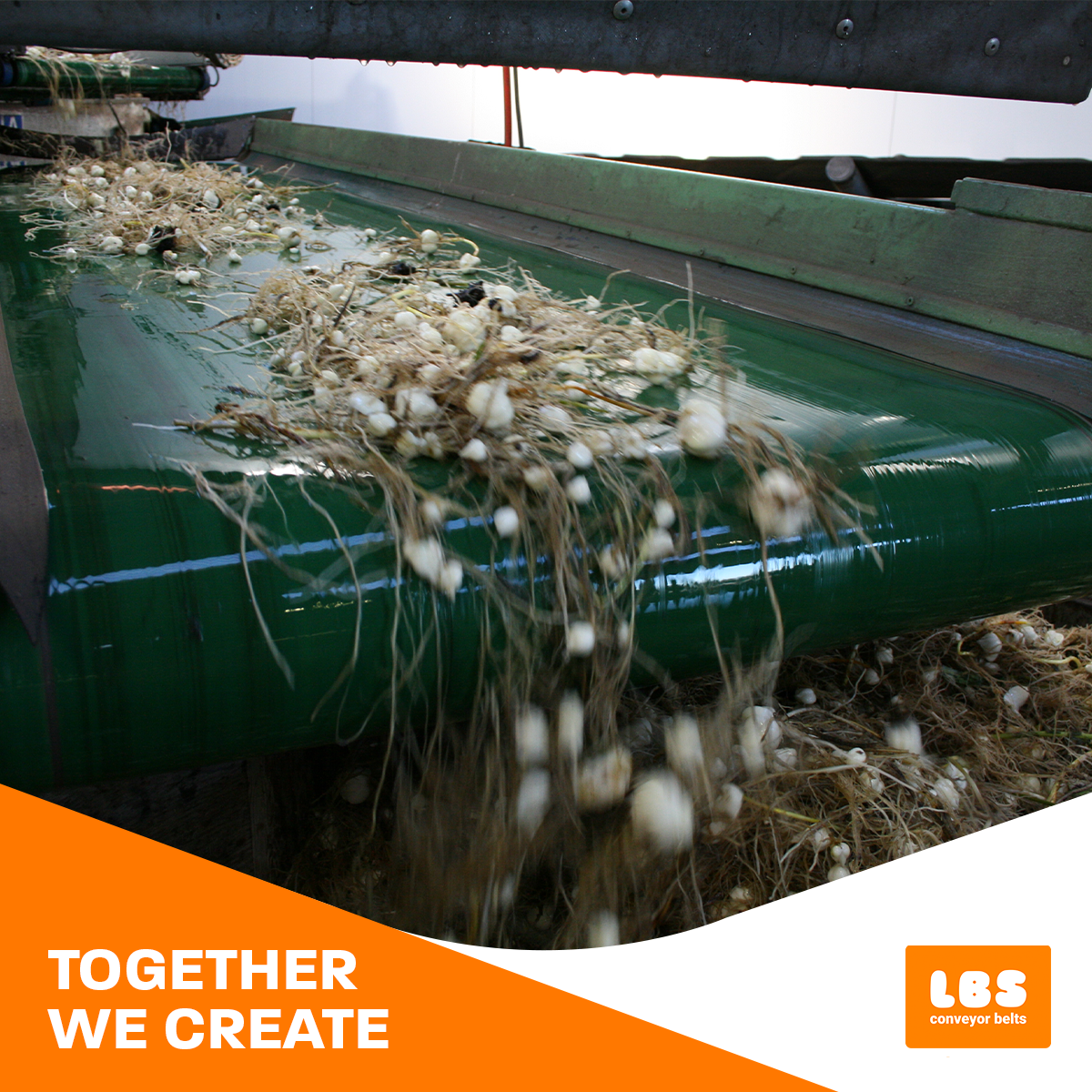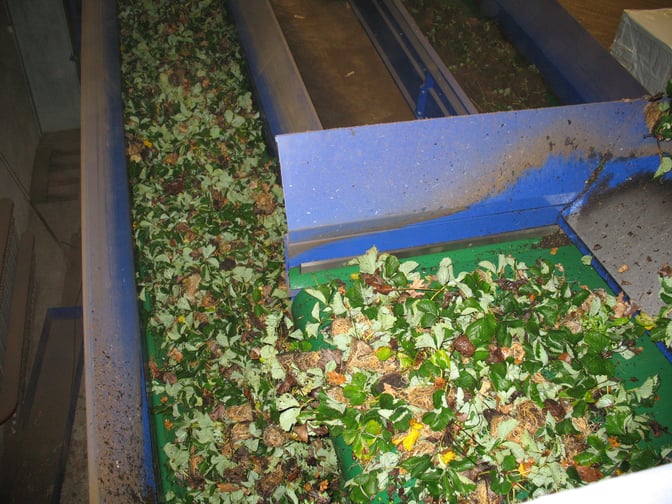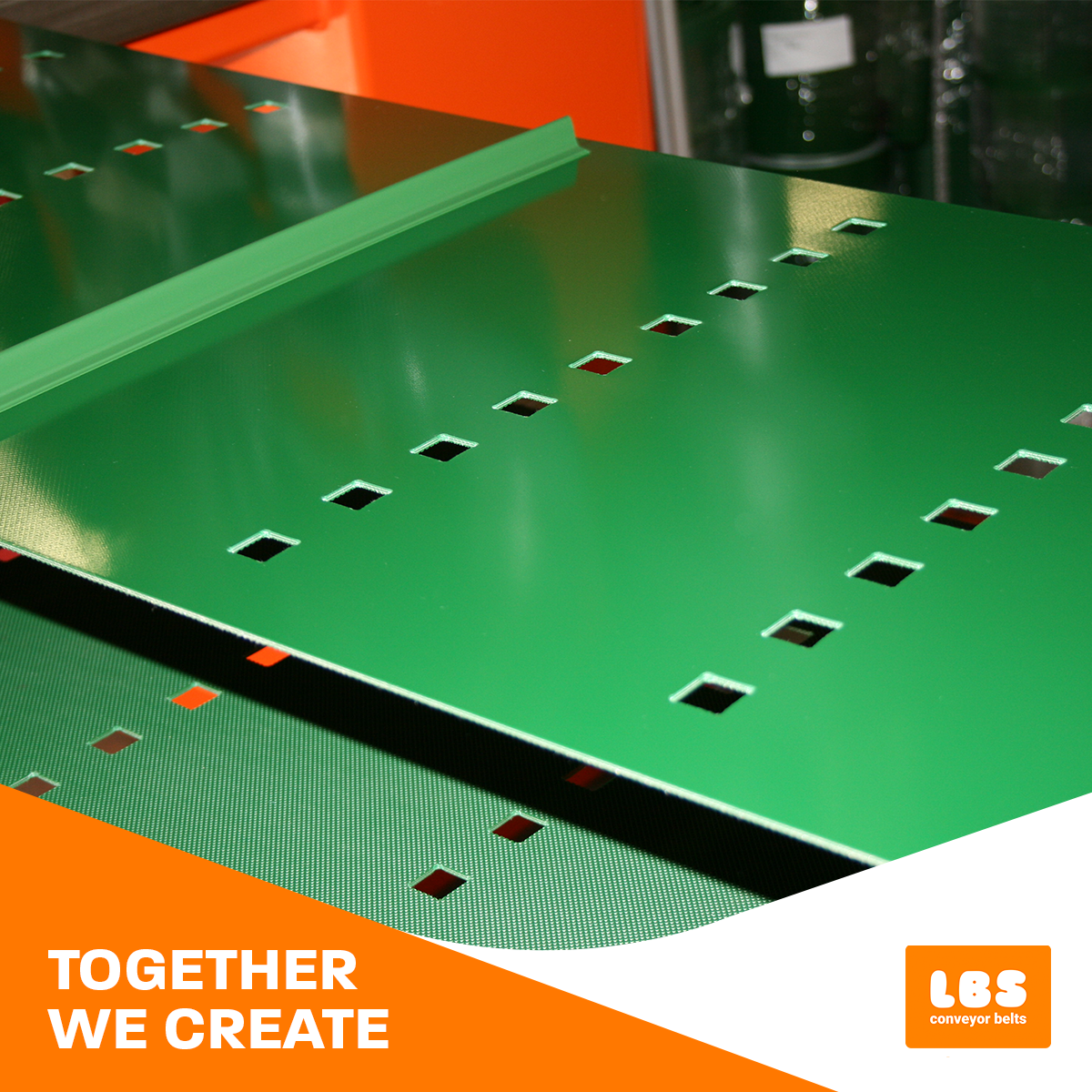DEALING EFFICIENTLY WITH HIGH AND DYNAMIC LOADS: SUSTAINABLE CONVEYORS IN THE AGRICULTURAL SECTOR
In the dynamic world of agriculture, the efficient movement of products such as crops, feed and manure is vital. The combination of the weight of these materials and often compact installations highlights the need for durable conveyor belts capable of moving large quantities of materials efficiently. In this article, we focus on two crucial factors that affect the load and performance of conveyor belts: drum diameter and belt speed.

WHAT TO PAY ATTENTION TO WHEN CHOOSING CONVEYORS IN THE AGRICULTURAL SECTOR
Influence of drum diameter on load
A smaller drum diameter results in a sharper curve around the drum, which increases the tension on the conveyor belt. This increased tension can lead to increased wear and stress on the joint, the conveyor belt itself, and components on the conveyor belt, such as cleats. To meet these challenges, it is essential to choose conveyor belts that are robust and stable, allowing them to withstand the increased stress created by a smaller drum diameter.
Belt speed and dynamic load
Higher belt speeds accelerate the movement of the conveyor belt, which can lead to increased stretching and bumping between the cleats and the drum. It is critical to use components robust enough to handle these increased speeds. Regular maintenance and inspection are necessary to prevent wear and tear and extend the life of the conveyor belt.
Durable solutions for efficient conveying
When dealing with high and dynamic loads, both rubber and synthetic conveyor belts are suitable choices. Rubber conveyor belts, ideal for transporting raw materials directly from the land, offer excellent grip and durability, enabling them to withstand heavy loads and harsh conditions.
On the other hand, in more advanced stages of the production process such as food processing and packaging, plastic conveyor belts come in handy. Made of materials such as PVC and PU, these conveyor belts have smooth surfaces that can be easily cleaned and disinfected. They meet strict hygiene standards, making them suitable for applications in the food industry and often have food grade approvals.
CHOOSE DURABLE TRANSPORT WISELY
In the face of high and dynamic loads, selecting the right conveyor belt is of utmost importance. By considering drum diameter, belt speed and type of conveyor belt, agricultural companies can implement sustainable solutions that are not only efficient, but also maximize the life of the conveyor belt infrastructure. Regular maintenance and careful inspection are key to ensuring optimal performance in this demanding environment.
Want more tips on which conveyor belt are best suited in the agricultural sector? Then download our white paper now: 6 TIPS FOR CHOOSING A CONVEYOR BELT IN THE AGRICULTURAL SECTOR.
We supply conveyor belts based on quality, robustness and durability. You can also come to us for advice, for example on the correct assembly and loading of conveyor belts, for optimal running direction.
Do you have questions about this or other questions about conveyor belts? Contact us, our specialists are ready to assist you.










